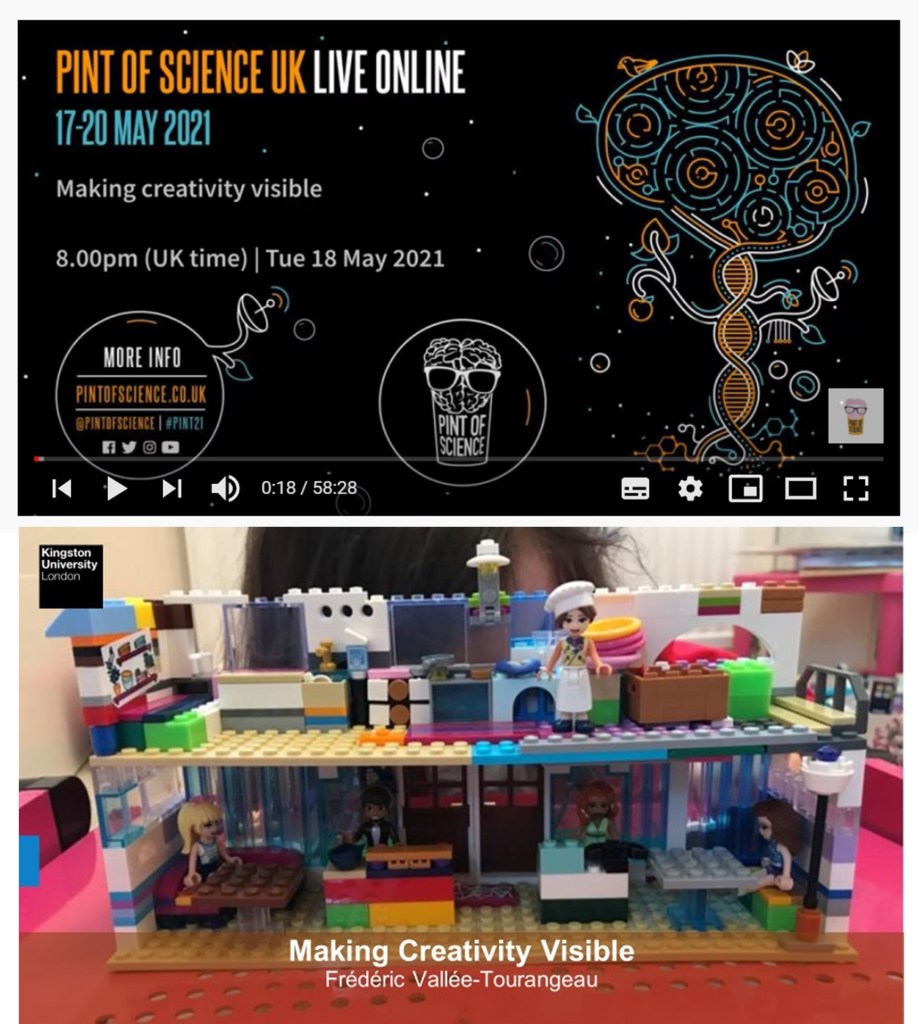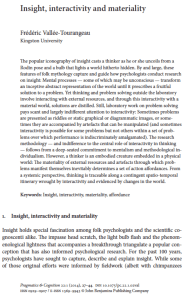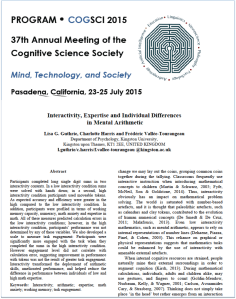The context within which people can enact their thinking following incubation is key to improve problem-solving performance
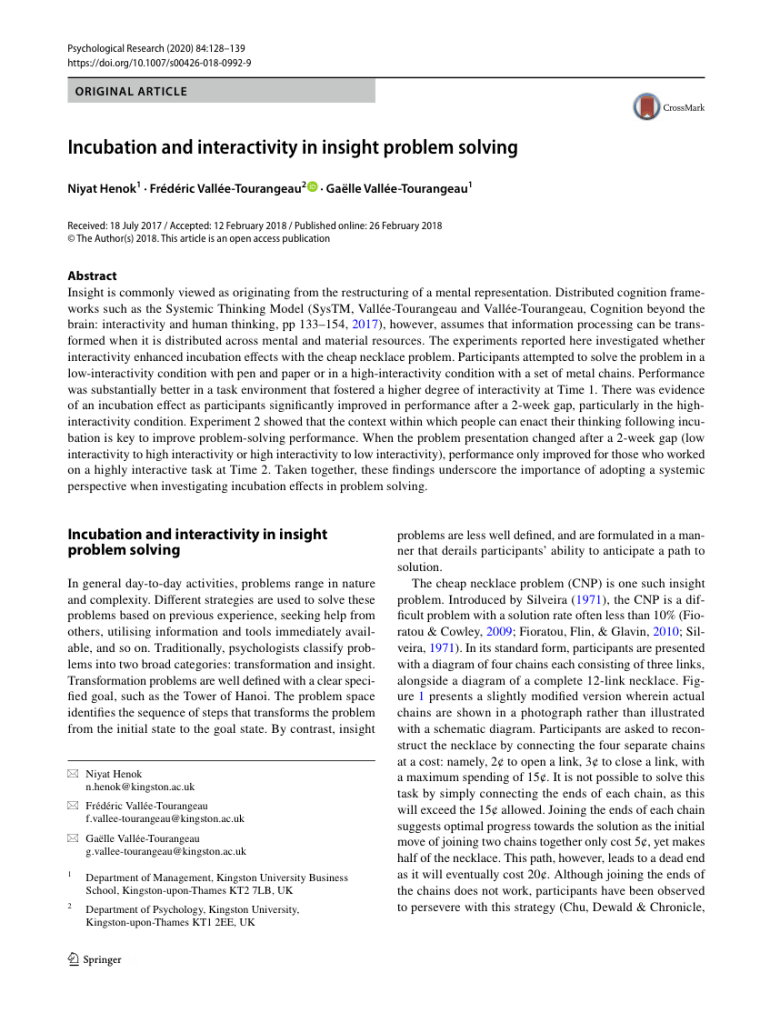
Henok, N., Vallée-Tourangeau, F., & Vallée-Tourangeau, G. (2020). Incubation and interactivity in insight problem solving. Psychological Research, 84(1), 128–139. https://doi.org/10.1007/s00426-018-0992-9
Interactivity, serendipity and verbal fluency determine performance in a word production task
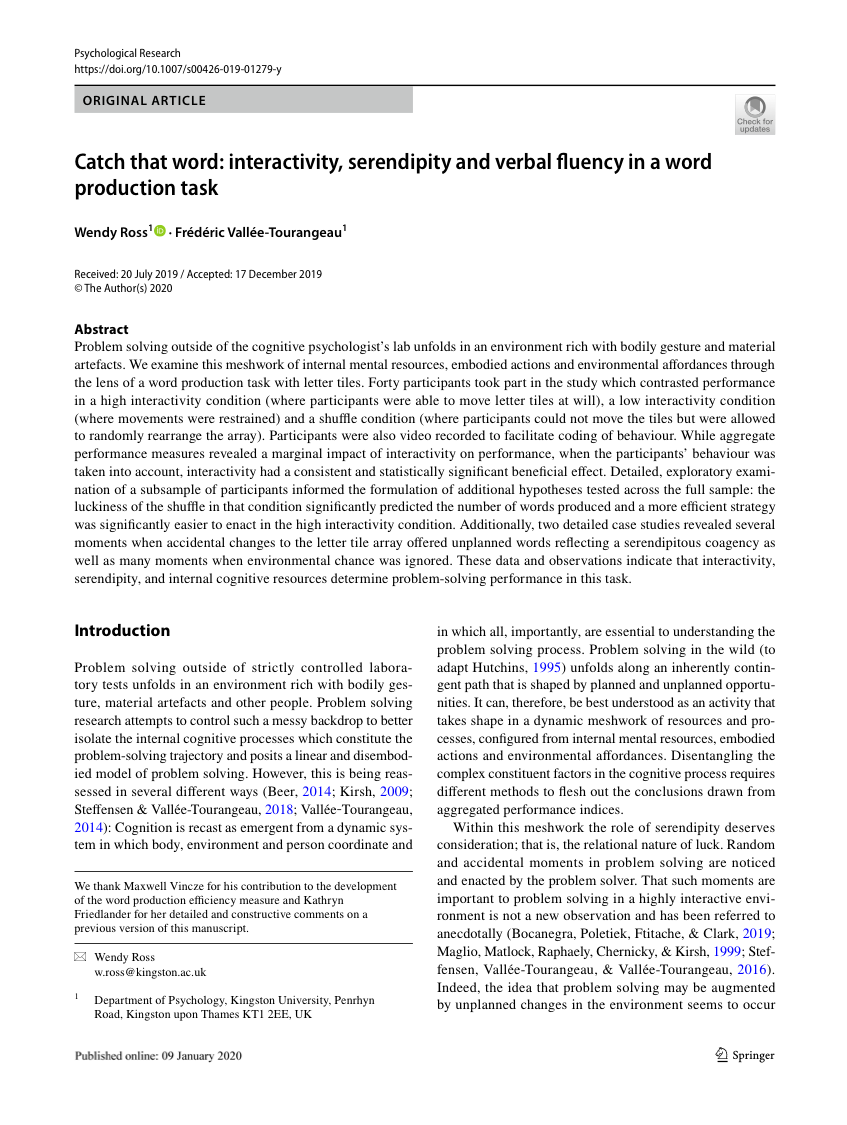
Ross, W., & Vallée-Tourangeau, F. (2020). Catch that word: Interactivity, serendipity and verbal fluency in a word production task. Psychological Research. https://doi.org/10.1007/s00426-019-01279-y
Cognition Beyond the Brain (2nd Edition)
The second edition of Cognition Beyond the Brain is coming out soon with new chapters from Gaëlle Vallée-Tourangeau (Systemic Thinking Model), Jens Koed Madsen (Multi-scalar Temporal Cognition), Alex Aston (Cognition Ecology and the Paris Commune), Kare Poulsgaard and Lambros Malafouris (Models, Mathematics and Materials in Digital Architecture).
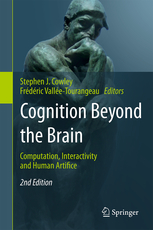
SysCog Lab Research at CogSci 2017
Research from the SysCog lab was showcased at the 39th annual meeting of the Cognitive Science Society held in London in July 2017. Emma Henderson presented her work on interactivity and planning and Fred presented a paper on insight problem solving and ego depletion.
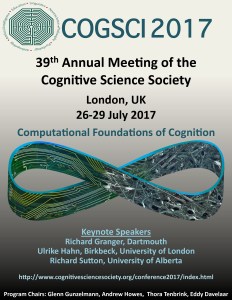
Planning in Action: Interactivity Improves Planning Performance
Emma Henderson, Gaëlle Vallée-Tourangeau, and Frédéric Vallée-Tourangeau
Planning is an everyday activity that is extended in time and space, yet is frequently studied in the absence of interactivity. Successful planning relies on an array of executive functions including self-control. We investigated the effects of interactivity and self-control on planning using a sequential-task paradigm. Half of the participants first completed a video-viewing task requiring self-control of visual attention, whereas the other half completed the same task without the self- control constraint. Next, and within each of these groups, half of the participants manipulated cards to complete their plan (high-interactivity condition); for the other half, plans were made with their hands down (low- interactivity condition). Planning performance was significantly better in the high- than in the low- interactivity conditions; however, the self-control manipulation had no impact on planning performance. An exploration of individual differences revealed that long-term planning ability and non-planning impulsiveness moderated the impact of interactivity on planning. These findings suggest that interactivity augments working memory resources and planning performance, underscoring the importance of an interactive perspective on planning research.
Interactivity and Ego Depletion in Insight Problem Solving
Frédéric Vallée-Tourangeau
In the triangle of coins problem coins are arranged to create a triangle pointing down and the solution involves moving a few coins to change its orientation. The task ecology can be designed such that participants can work on it in a low interactivity environment, maintaining a mental representation of simulated moves, or in a high interactivity environment, thinking with and through a physical model of the problem. These task ecologies involve working memory to a different degree: Problem solving draws more on working memory the lower the degree of physical interaction. Participants first engaged in a writing task that required vigilance to inhibit common word choices, a degree of self regulation designed to induce a so-called ego depletion; participants then worked on the ToC problem in either a low or high interactivity environment. Solution rates were determined by level of interactivity; the preceding depletion experience did not impact performance.
Systemic Cognition Symposium
The first edition of the Systemic Cognition symposium took place at the Kingston Business School on Tuesday July 25 2017. The symposium was co-organized by the Systemic Cognition lab (https://syscoglab.com/, Department of Psychology) and the Decisions, Attitudes, Risk and Thinking research group (https://dartresearch.org/, Department of Management). The symposium explored the theoretical and methodological challenges arising from the systemic study of cognition; that is, cognition as it emerges from the interactivity between an agent and the elements of the system within which he or she is embedded. Systemic elements may include other social agents, organisational and cultural practices and/or material artefacts. The programme and abstracts can be accessed here.

Systemic Cognition Lab Research at CogSci 2015
Research from the Systemic Cognition at CogSci 2015 (Interactivity and Mental Arithmetic)
https://mindmodeling.org/cogsci2015/papers/0152/index.html

